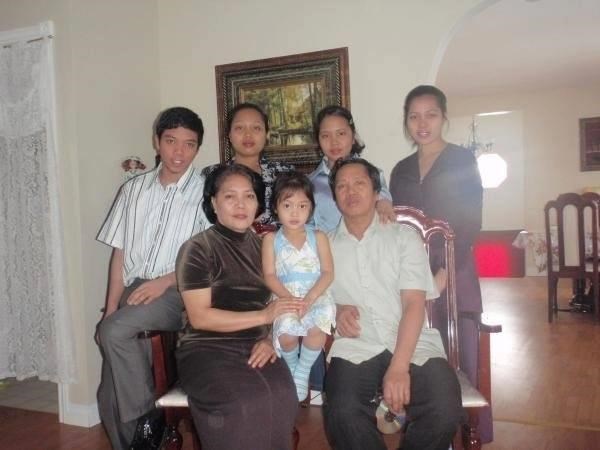Members of the Filipino community in Moosonee are very close-knit, “anchored in their faith” and like to laugh a lot, according to a former resident.
“They’re really there to help each other when you need them,” says Ellen Galupo. “It’s so neighbourly, almost every week we had a party. It's a very tight community. Even when you leave, you still feel a part of it."
There is a growing community of over 50 people who arrived from the Philippines and settled in Moosonee, says Galupo, 24.
Her family first immigrated to Toronto in 2006. Galupo’s mother, Pat Galupo, worked as a registered nurse and was sent to work in Fort Albany. During her time there, she had a chance to visit Moose Factory and Moosonee and she “just fell in love” with the community.
“She kept saying it’s just like home, it’s rural and people are so friendly,” Galupo says. “So, she called us and she was excited, so two weeks later our family, including some of our cousins and our friend Teresita Jardino, packed up and we were ready to go.”
It was November when their group of about 10 people headed north and Galupo, who was 12 at the time, remembers how everything was already covered in snow.
Coming from the small town Tacras located on a Palawan island, it didn’t take too long for them to feel at home, Zalupo says adding there are many similarities between Moosonee and the Philippines.
“We started to form a community. Whenever my mom or the whole family went to visit Toronto, my mom would try to convince people to come to Moosonee … A lot of them actually came. Some didn’t stay long, some left, some came back.”
She says it was a privilege growing up with two cultures.
Thanks to her close connection to the Filipino community, she never lost touch with her roots and still speaks fluent Tagalog. She also had a chance to learn about the Indigenous way of living at Camp Onakawana where she got to ice fish, skin a rabbit and hunt geese.
“Because of the growing community, the Northern Store started ordering Filipino food. When you go to the Northern Store, one section of it is just dedicated to Filipino snacks and food. So, you got to influence a little bit on the town.”
The best time was Christmas when Galupo’s family would rent a gym and invite all community members to experience Filipino culture and food.
Galupo left Moosonee in Grade 10 to finish her secondary education at a boarding school in Oshawa so she could ultimately pursue post-secondary education.
When she was studying at the University of Ottawa, she says she learned about residential schools and when she went back to Moosonee one summer, she created the Humans of the Moose River project to document the lives of people living in the community.
“It was like a gold mine open. I interviewed former residential school survivors. It was such great learning for me. These were the people I saw growing up but they harbour all these secrets and stories I never even knew and that made them who they are.”
Galupo, who is now living and working in Ottawa, doesn't visit her home often but she did get a chance last year when she started working as a parliamentary secretary assistant at the Office of Minister of Canadian Heritage. As the government was working on the Indigenous languages legislation and consulting with stakeholders across the country, Galupo suggested visiting Moosonee.
With her boss, Scarborough-Rouge Park MP Gary Anandasangaree, they visited the Northern Lights Secondary School and made a stop in Moose Factory. The Filipino community also brought food and made a “feast” for them in the basement of the church.
“They had paper flowers and decorations,” she says. “(Anandasangaree) had a really good time and really enjoyed learning."
Whenever people ask her where she’s from, Galupo always responds she’s from Moosonee.
“Moosonee will always be home for me. It’s where my heart is."



